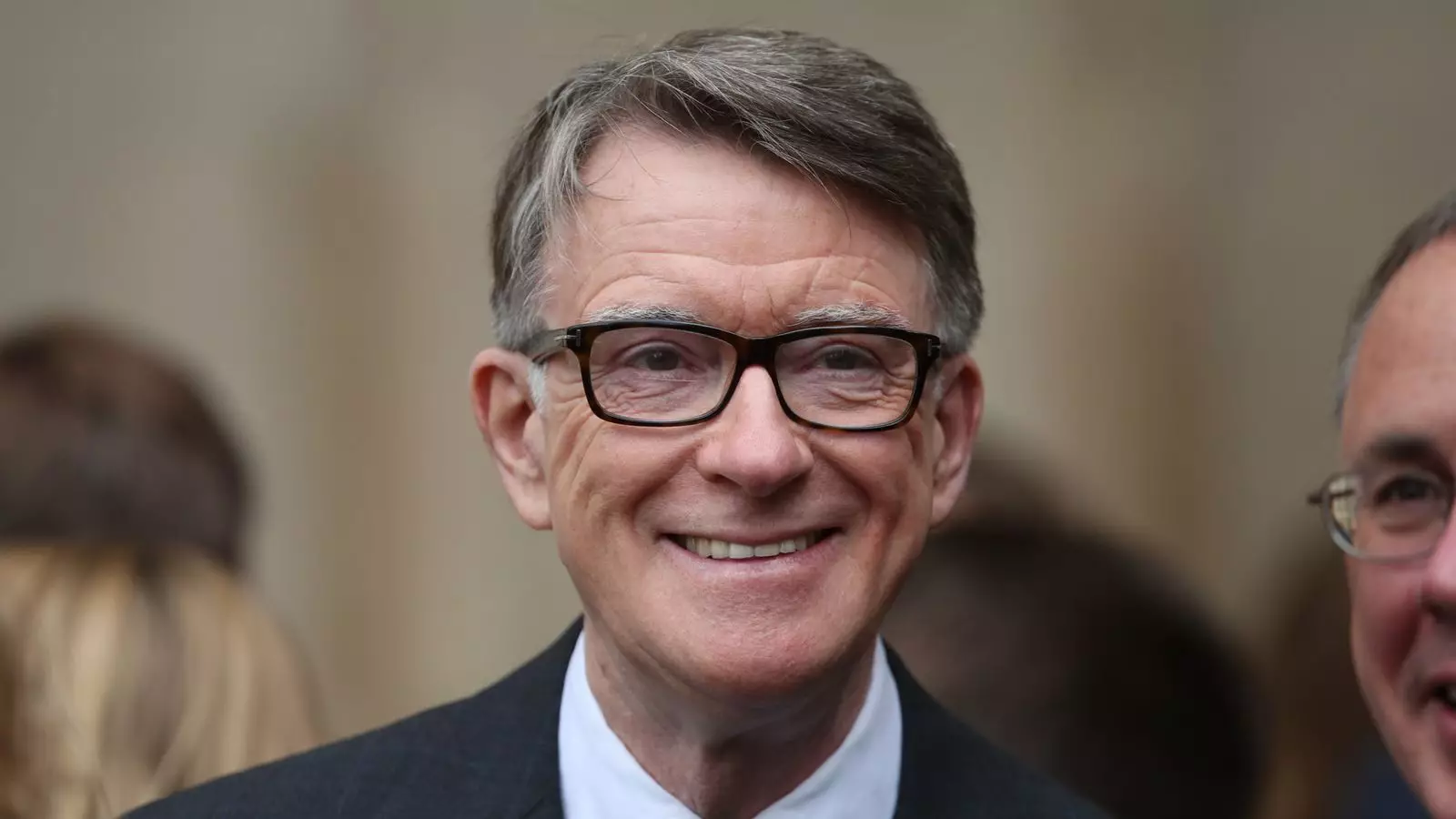The appointment of Lord Peter Mandelson as the UK ambassador to the United States is a noteworthy event, marking a significant moment in UK-US relations as well as reflecting the broader spectrum of political dynamics at play. His appointment arrives amidst Donald Trump’s upcoming return to the White House, providing not just a political signal but also revealing the contentious nature of modern diplomacy. This article delves into the implications of this appointment, the political discourse surrounding it, and the larger context of diplomatic relations between the UK and the US.
The announcement of Lord Mandelson’s new role sparked criticism from several quarters, notably from Chris LaCivita, a senior figure in Trump’s campaign, who disparaged Mandelson as an “absolute moron.” This derogatory remark signals a polarized political environment where diplomatic appointments are scrutinized not just for their professional merits but also through the prism of partisan politics. Mandelson, a prominent Labour figure and a key architect of the New Labour movement in the 1990s, is not without his detractors, especially given his previous statements labeling Trump as a “danger to the world” and characterizing him in racially charged terms.
This rich tapestry of political opinions highlights how appointments can quickly become battlegrounds for larger political conflicts. LaCivita’s comments reflect a sentiment amongst some US conservatives that views UK diplomatic appointments through a lens of personal loyalty and political alignment, particularly with figures like Trump, who have cultivated a base that often prioritizes tribal political alignments over traditional diplomatic protocols.
Keir Starmer’s Vision for UK-US Relations
Encountering the opposition, Labour leader Keir Starmer defended the appointment, emphasizing the necessity of a robust diplomatic relationship with the United States. Starmer articulated a vision for the UK’s future that hinges on the productive engagement with international partners, especially the US, which he declared as “one of our most important allies.” Starmer’s sentiments resonated with the historical context of UK-US relations, branding Mandelson’s experience as invaluable in navigating the complexities of diplomacy.
By positioning Mandelson as more than just a political appointee but as a bridge to effectively bolster economic and security interests, Starmer evokes the quintessential diplomatic ethos necessary for modern governance. This reflects a broader understanding that effective diplomacy extends beyond personal relationships to engage with systemic issues like trade, defense, and international cooperation, recognizing that the stakes are far higher than mere electoral politics.
Mandelson’s political trajectory is marked by both significant achievement and controversy. With experience ranging from serving in critical cabinet positions to his tenure as a European Commissioner, Mandelson embodies a wealth of diplomatic and trade knowledge. He has been instrumental in shaping policies that respond to the UK’s economic needs throughout various political climates, yet this legacy is shadowed by accusations of elitism and alienation from the Labour party’s more traditional roots.
His return to a prominent role as UK ambassador poses an interesting challenge: can a figure often regarded as a flashpoint for internal party conflict reconcile with a new era of political engagement? With the so-called “Prince of Darkness” moniker often applied to him, Mandelson must navigate these perceptions while engaging with varying stakeholders within the US, from policymakers to public opinion influencers.
The Role of Public Opinion and Media Narrative
Public sentiment towards diplomatic appointments can significantly influence their effectiveness. Mandelson’s direct past criticism of Trump may set a challenging tone in his engagement with the new administration. The media narrative surrounding such appointments often moves at a fast pace, shaping public opinion and providing a complex backdrop against which these relationships unfold.
In this environment, the ability of Mandelson to reposition himself from a controversial political figure to an effective diplomat will be assessed, not only by his ability to connect with the US government officials but also how he manages to galvanize support back in the UK. The political connection alongside public perception will likely play crucial roles in determining the success of his ambassadorship.
Lord Mandelson’s appointment as UK ambassador to the US encapsulates a fascinating intersection of diplomacy, politics, and public sentiment. As political lines are redrawn and new administrations take charge, such figures face significant challenges but also unique opportunities to shape the future of UK and US relations. The ultimate success of Mandelson’s role will rely on his ability to navigate these murky waters amid skepticism while capitalizing on his extensive experience and connections to foster positive diplomatic ties, not only for the UK but also as a cornerstone of international collaboration in an increasingly complex geopolitical landscape.


Leave a Reply